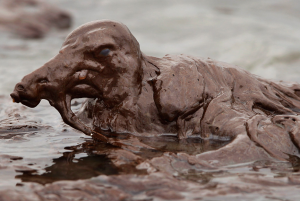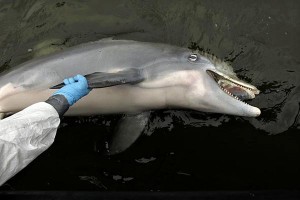By Stacy Kika on November 29, 2011
WASHINGTON — The U.S. Environmental Protection Agency (EPA) today announced that several subsidiaries of BP America Inc. have agreed to pay a $426,500 penalty and ensure that more than $240 million in funds are secured to resolve violations of hazardous waste, drinking water and Superfund financial assurance requirements. Financial assurance protects public health and the environment by ensuring that companies have the financial resources available to properly close facilities and clean up pollution at contaminated industrial sites.
secured to resolve violations of hazardous waste, drinking water and Superfund financial assurance requirements. Financial assurance protects public health and the environment by ensuring that companies have the financial resources available to properly close facilities and clean up pollution at contaminated industrial sites.
“Financial assurance protects taxpayers from having to foot the bill for costly cleanups,” said Cynthia Giles, assistant administrator for EPA’s Office of Enforcement and Compliance Assurance. “Today’s settlement will ensure that BP’s subsidiaries have the funds available to cover any necessary cleanup costs today and into the future.”
BP produces, refines and markets oil and gas. Upon receipt of information from the California Department of Toxic Substances Control and BP, EPA determined that between 2006 and 2010 BP Exploration (Alaska) Inc., BP Products North America Inc., and BP West Coast Products LLC failed to meet their Resource Conservation and Recovery Act (RCRA) and Safe Drinking Water Act (SDWA) financial assurance requirements.
On July 14, 2010, EPA sent notices of violation to BP notifying the companies that they were not in compliance with applicable financial assurance requirements and that they needed to obtain qualifying financial assurance for these obligations.
As part of the two administrative agreements, BP has obtained replacement financial assurance instruments in the form of letters of credit, standby trusts, and insurance policies for more than $149.1 million in obligations. Specifically, BP has provided assurances covering $129.8 million for its RCRA hazardous waste facilities and $19.2 million to address the closure, plugging, and abandonment of underground injection control wells under the SDWA. BP has also agreed to pay a civil penalty of $411,500 and has agreed to maintain compliance with the financial assurance requirements under RCRA and SDWA.
Specifically, BP has provided assurances covering $129.8 million for its RCRA hazardous waste facilities and $19.2 million to address the closure, plugging, and abandonment of underground injection control wells under the SDWA. BP has also agreed to pay a civil penalty of $411,500 and has agreed to maintain compliance with the financial assurance requirements under RCRA and SDWA.
EPA found that financial assurance provided by BP subsidiaries, Atlantic Richfield Company and BP Products North America Inc., at several Superfund sites was also inadequate. BP has resolved these issues by providing compliant financial assurance mechanisms covering $98.8 million in Superfund obligations and agreeing to pay a penalty of $15,000.
BP also had inadequate financial assurance coverage for RCRA facilities covered by state orders and regulations and for SDWA wells for which the states have primary enforcement responsibility. EPA worked with its state partners to obtain from BP a total of $76.4 million in compliant financial assurance coverage for these obligations.
More information on the settlement: https://www.epa.gov/compliance/resources/cases/civil/rcra/bpalaskainc.html
Source:
https://yosemite.epa.gov/opa/admpress.nsf/0/BEA3C5D6D4E8A8248525795700602217
 sending...
sending...

To finish the cleanup professionals can help you to completely dry the area. They are able to detect every area that may not appear to be damaged, but is filled with water that will show later. It is extremely important to rid all water to prevent mold from further down the road. Mold is not something that has a chance of being fixed, as water damage has a shot. After detecting all areas of damage they will dehumidify the area and regulate the temperate in the room. These are crucial aspects in saving the wood from rejecting repair
Mold and mildew usually stem from that were neglected and not cleaned out and repaired. Given the proper conditions to thrive, mold propagates rather quickly. Mold is a significant health hazard in the home environment and is responsible for symptoms such as headaches, runny nose, asthma, dizziness, rashes, fatigue, respiratory problems, and others. Thus, water damage that is left unattended for over 48 hours is likely to develop mold as well as structural damage, requiring more involved repair work and driving up the cost of the fire and water damage restoration project.